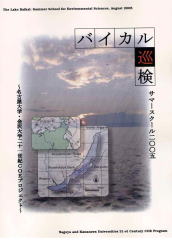Endocrine disrupting activities of atmospheric pollutants
Ryoichi Kizu, Ph. D., Associate Professor |
 |
Suspended particulate matter in atmosphere (SPM) is one of main air pollutants in these years and have attracted much attention in relation with respiratory diseases such as lung cancer and asthma. On the other hand, there is growing concern that environmental pollutants that may cause abnormalities in sex differentiation, growth and intelligence development in human and wild animals. These chemicals have been classified as endocrine disrupting chemicals (EDCs) or environmental hormones. We have demonstrated that SPM contains the chemical components which antagonize the action of sex hormones, and that polycyclic aromatic hydrocarbons are members of such components.
Our study also suggested that SPM originated from coal has stronger endocrine disrupting activity than that from petroleum. The countries in Pan-Japan Sea area such as China, Korea and Russia are developing rapidly in industry and economy. Consumption of fossil fuels is also increasing in these countries. It seems likely that advanced air pollution with SPM increase the incidence of not only respiratory diseases but also abnormalities of endocrine systems.
We are conducting several studies on atmospheric EDCs: those include development of rapid and sensitive bioassay methods, identification and determination of EDCs in atmospheric samples, and clarifying of endocrine disrupting mechanism in order to clarify the impacts of air pollution on human endocrine-system functions in the Pan-Japan Sea area.



